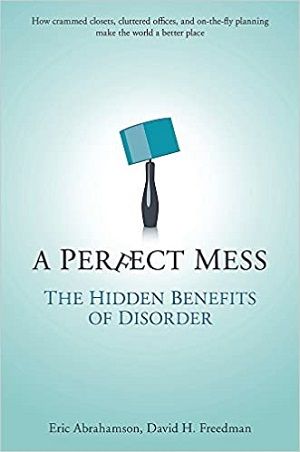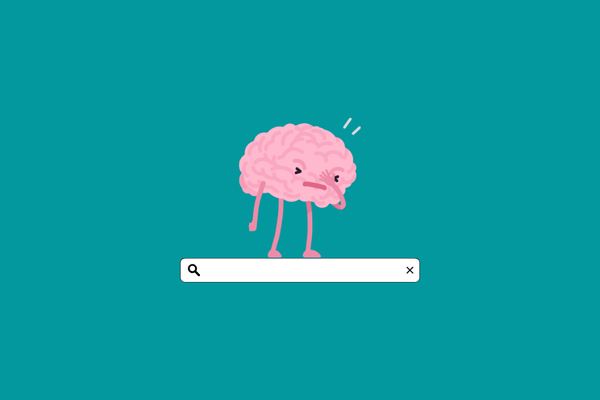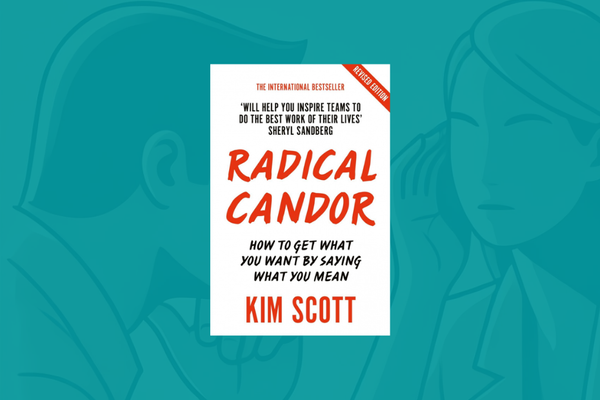The Suprising Benefits of Being Messy: A Perfect Mess Summary
Organize your notes, declutter your home, make order in your garage. They are accepted as productive activities, but are they always? It turns out sometimes it is worth being a little messy.

While there is no data to back up the upside of being organized in most of the mentioned areas, having too much order has definite downsides.
A messy home shows your personality. A cluttered one is like every other one.
If you can find your notes in a pile of papers then what is the upside of categorizing and putting away those papers?
The definite disadvantage of aiming for too much order is losing time. You can argue for order with increased productivity, but what happens when you take into calculation the time lost during organizing and decluttering.
I have a strange satisfaction from organizing most parts of my life. I did my research on the Getting Things Done productivity system. I have Notion tables for every little nuance and I invested an insane amount of time to fine-tune my note-taking system.
All of these activities give me a sense of accomplishment. I feel calm and more confident after reviewing my week in Notion or adding permanent notes to my Zettelkasten. Yet, I am not 100% sure that they deliver the value promised.
Some of these routines feel like overengineering. I dropped several of them because they took more time away than the benefits they provided.
Order can be comforting but sometimes it is worth it to be a little bit messy. Whether we are talking about businesses, software, note-taking, or arts, there is an upside to not being too rigid.
The authors of A Perfect Mess: The Hidden Benefits of Disorder took the unpopular side on the organize everything debate. Eric Abrahamson and David H. Freedman are presenting us studies and examples on the surprising benefits of being messy.
A Perfect Mess Summary & Highlights
Read below my take on the book A Perfect Mess. I did not intend this article to be a fully comprehensive summary. This book is touching several different disciplines and its lessons can be applied to areas beyond my expertise.
I encourage you to give a chance to A Perfect Mess: The Hidden Benefits of Disorder yourself.
But if you are here for the summary, you can find it in the following paragraphs.
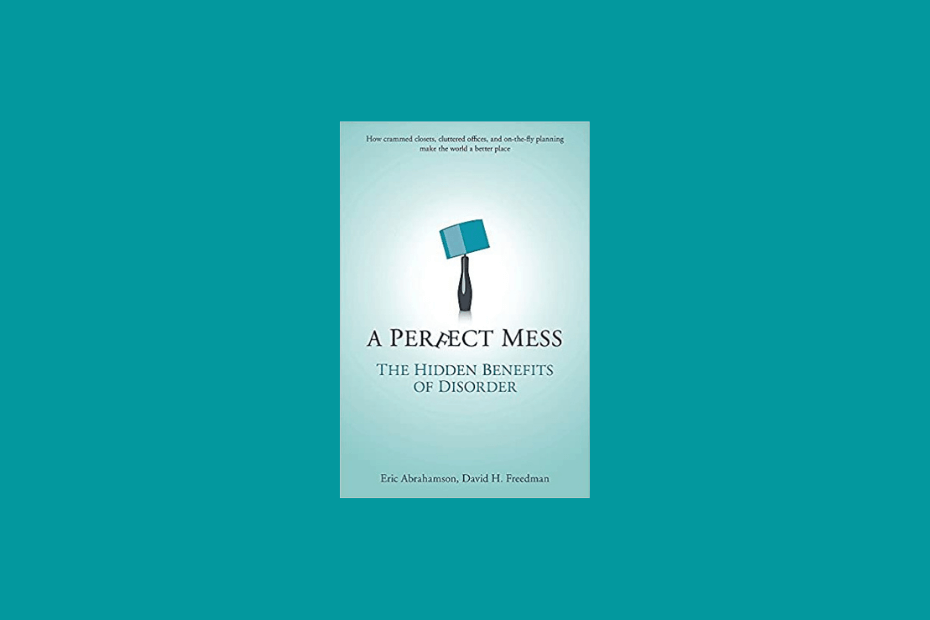
tl:dr
- Procrastinating can be productive. It keeps you away from working on the wrong goals. Also leveraging new solutions later can be more beneficial than paving the way for innovations.
- Being focused is overrated. You can’t know that something you labeled unproductive may contribute to your life. Random discovery known as serendipity can be valuable to you only if you let seemingly unrelated things take a part in your life.
- Aim for the optimal level of messiness. Being messier isn’t always better but there are upsides to walking away from highly ordered schemes.
- Improvisation requires you to be a little bit messy. But to be able to improvise you need to have solid fundamentals.
- Adopt a shifting mindset and be flexible when facing messy environments (like terrorism or fierce competition) or continuously changing challenges.
- In a messy system like the world economy, there are no institutions that can make ordered forecasts.
- Besides signal, the mess is required as well. We ignore advertising because they contain too much signal (order) without any noise (mess).
- Better organization or new ways of working often doesn’t cause any improvement. They positively impact the results only because workers try harder when they are being observed (Hawthorne effect)
- Too much order can hurt you. While a messy home rarely impacts your health drastically, chemicals used for cleaning or too clean surfaces can make you sick.
- Improvisation and unexpected moves are an integral part of novels, paintings, and music as well.
The Benefits of Being Messy
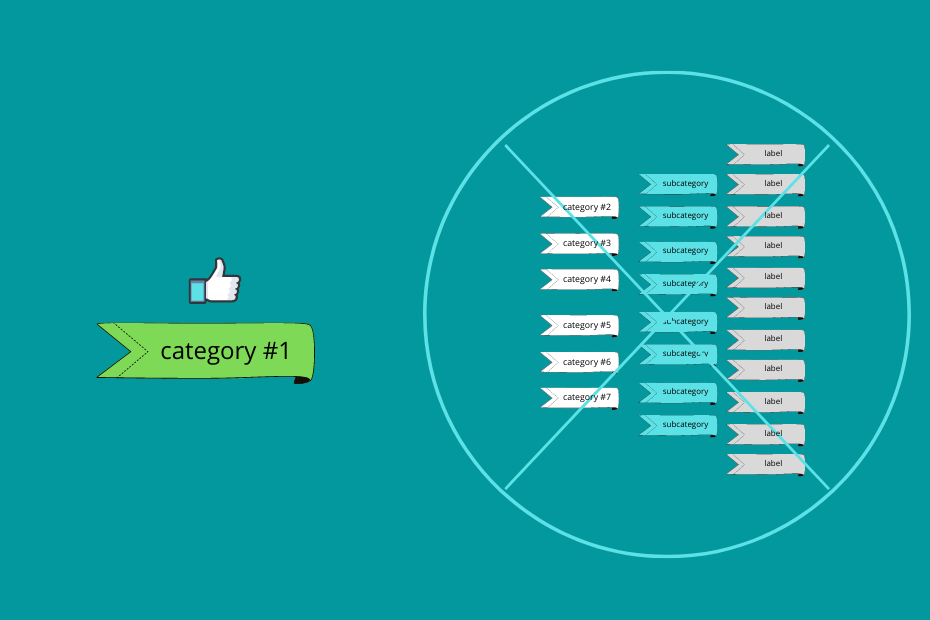
- What's the advantage of being organized? “When asked how they (professional organizers) determine whether a potential client is likely to get more out of organizing than she puts into it, professional organizers at the conference respond that they don’t make that determination; they just provide clients with whatever help they’re looking for.
- A messy desk can be productive - Reason #1: “A messy desk can be a highly effective prioritizing and accessing system. People with messy desks enlist any number of different strategies, often unconsciously, for keeping the work they need at hand.”
- A messy desk can be productive - Reason #2: A messy desk will tend to naturally reflect the way you think and work.
- The messy genius - Einstein: “Einstein makes a good role model here not simply because he is so widely accepted as having been highly effective at his job, but also because, as we’ll soon see, Einstein might be regarded as a sort of godfather of the science of useful mess.
- Categorization can mean oversimplification: “Our interest in categorizing can lead us to view the world in oversimplified ways…. As soon as we put an entity in one category, we risk failing to notice its potential utility in another one.”.
- Consider less-ordered alternatives: “One of the main points of this book is that there’s already too much emphasis on and advice about how to get organized. We’d prefer that people consider less-ordered alternatives in many situations…”
- The optimal level of messiness: “Whether in business, at home, or in navigating New York’s streets, messier isn’t always better—it’s all about achieving the optimal level of messiness. Try being a little messier in some way, and see if there’s an improvement. If there is, try a little more. Keep going until you get the sense that somewhere along the way things got worse, at which point you might want to try being a little neater.”
Organizations, competition, noise

- Does being more organized serve us? “Jared Diamond, for one, has questioned whether the whole agriculture thing was a smart move, pointing out that hunter-gatherers might have had it pretty good; - today in Africa’s Kalahari Desert hunter-gatherers work fifteen hours a week, give or take, and spend most of the rest of the time sleeping and in leisure activities.”
- Unordnung: The German word for mess is coming from the absence of order. “It may be harder to appreciate something when the only way to conceive of it is as the absence of something else, especially when that something else is generally cherished.”
- Find the right answers through mess: “This seventy-something ... “professor of creative management,” openly boasts of occasionally making statements he knows to be untrue just to “confound” the people around him.”
- The first-movers disadvantage: “Historically, companies that are slower to move into new types of products and services are more likely to do well than the companies that pave the way, as long as there aren’t billion-dollar infrastructure costs involved.”
- False feedback is the part of organizations: “...assessments have to be communicated up and down an organization, and because managers’ standings can rise with positive assessments and fall with negative ones, the process tends to produce oversimplified assessments that are spun to emphasize the positive.”
- Government forecasts are wishes: “One study found that a technique of simply guessing that the gross national product will remain whatever it is right now for the next three months did better on average than three out of four of the government’s leading models.”
- Noise is a form of mess: In the world of communications, and in fact in all forms of information transmission, there is signal—that is, what we hope to distinguish and derive information from, generally a speaking voice in the case of a cell phone—and there is noise, which is most everything else, including background sounds. Noise is a form of mess.
Innovate and Growth while Being Messy
- Hawthorne effect: “These studies clearly demonstrated that worker output improved when any change was introduced to the work environment or processes.This sort of improvement, now known as the Hawthorne effect, is simply due to the fact that people tend to try harder when they know they’re being observed.”
- Random variations for growth: “When other weight lifters were focusing on set regimens of exercises that often left them plateauing short of their seam-splitting goals, Schwarzenegger pioneered an approach that called for constantly shaking up routines with random variation.”
- The discovery of penicillin enabled by disorder: “...if Fleming hadn’t been messy, he probably wouldn’t have discovered penicillin. Disorder created connections—that is, resonance—between the lab and the world around it, as well as between the lab work and Fleming himself. If Fleming hadn’t left open petri dishes scattered by an open window before going on vacation, the mold that drifted in—possibly from an allergy lab downstairs—most likely wouldn’t have.”
- For messy challenges, adopt a shifting mindset: “Since so little about al-Qaeda’s organization is fixed, counterterrorism analysts and strategists have to be ready to adapt their views to shifting realities and prospects,” -- notes David Ronfeldt, a senior social scientist at national-security think tank Rand Corporation.
- Being focused is overrated: “What happens if after years of focus and consistency, you discover you’ve picked the wrong goals? How do you know that the things you are excluding from your life as time wasters are really time wasters if you’re excluding them from your life? New behaviors lead to new experiences, and eventually that helps people change the way they think,”
- Procrastination is not always a bad thing: “…it can keep you from working on tasks that ultimately turn to be useless.”
- Don’t fixate on productivity: Benjamin Franklin, the highly effective diplomat, and inventor said: “Lose no time; be always employed in something useful; cut off all unnecessary actions,” Laser-focus can work in some areas. In the meantime Benjamin Franklin spent his life far away from his wife, barely knew their children and failed in several other parts of life.
Clean homes, shuffle, and flexible contracts
- Order means something else for everyone: “...if the CDs are organized alphabetically by performer, then they will be randomly organized with regard to type of music. That’s another mess principle, of course: to organize in one way is to mess up in another.”
- Chemicals used for cleaning do more harm than mess: “…most asthma and allergy experts now maintain that exposure to common triggers can’t actually cause these ailments, as was once believed. Guess what can, though: very clean homes. Researchers at the Curtin University of Technology in Australia found that children exposed to fumes from home-cleaning products, among other chemicals, were up to four times more likely to develop asthma, even when exposure remained within what are currently regarded as safe levels.Another risk factor, oddly enough, is an unusually low level of allergens in the home. According to research reported in the British medical journal Thorax, children who aren’t sufficiently exposed to allergens when they’re very young are more likely to develop reactions when later exposed to normal levels.”
- Shuffling songs is better than categorizing: “you may want to think about the fact that after Apple brought out the iPod, the ideal device for neatly categorizing thousands of songs, it discovered to virtually everyone’s surprise that the most popular feature was the “shuffle” capability, which plays tunes in random order.”
- Advantage of keeping the "junk": “Almost anyone over age forty has had the experience of realizing with a pang that their childhood collections of baseball cards or comic books or Barbie dolls **would be worth a fortune today**, never mind their sentimental value.”
- On deciding what to keep: Frequency of use alone is a bad signal to decide what to keep and what to throw in the trash. Would you get rid of a gold watch because you don’t wear it too often? Take into account the potential value and replaceability of the item as well.”
- Contracts need to be messier: “Organizations frequently turn to consulting firms for major computer projects, enlisting long contracts that spell out in great detail exactly what is supposed to be delivered at the end of the project. That simply forces the consulting firm to drive single-mindedly toward those specifications, without necessarily having much regard for how users will appreciate the results when it’s all over. Some firms are starting to offer an “optional scope” contract that is actually a conglomeration of flexible minicontracts, each one of which covers the work for a few months or other limited period of time.
Improvisation and randomization
- Improvisation requires order: “To do it (for waiters to improvise during service), he realized, the waiters would need to be able to rely on a highly ordered, highly predictable system of preparing and delivering food, leaving them free to improvise with customers on everything else. And that notion of a measure of randomness supported by a layer of order is the final pillar of the group’s philosophy.”
- The upside of randomization: “…it adds an element of “relevant surprise,” in that a Web site that prominently incorporates a random word will probably address a topic that strays from the focus you had in mind—but will still have some relevance to you, because it also prominently incorporates your search term.”
- In the 18th century improvisation was part of classical music: "If you’re wondering how Bach managed to reconcile improvisation with the highly ordered, intricate, precise domain of baroque music, consider that in the eighteenth century improvisation was regarded as an integral component of serious music."
- Today’s novels has randomization built in: “Today it’s more the rule than the exception for the narrative of novels to jump around in time and space and between different points of view, to lay out a character’s confused thoughts in a form that is itself confusing, and to generally sprinkle in a measure of randomness and convolution.”
- Experimentation with randomness for paintings: “Vermeer and Rembrandt, who by the mid-seventeenth century were already experimenting with crowded, random-looking placements of figures and objects.”
